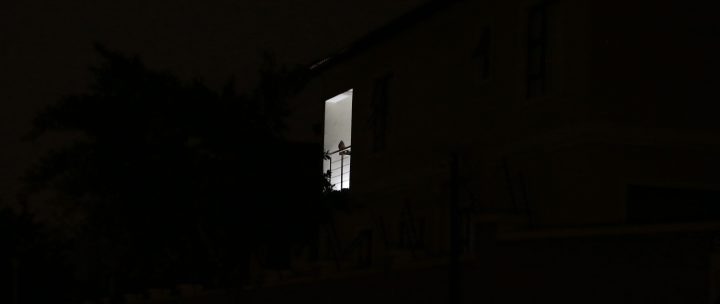IN THE DARK
Daily Maverick readers give a first-hand account of how load shedding has played havoc with their businesses

Load shedding is a hot button issue. Readers across the country responded to our survey on how load shedding has affected them, with 169 highlighting how it has impacted on their small businesses and working life.
‘Even when load shedding is scheduled, your Wi-Fi goes down. Now you need to try to use your hotspot so you can continue working online, but even that can be tricky because the cell towers are affected,” said East London resident Richard Field, a telecommunications consultant.
Beyond the inconvenience, what load shedding also does is “undermine my credibility and professionalism”, Field told Daily Maverick.
“We’re a small organisation of seven people and when load shedding happens, clients start to question our capability and they start considering going to a bigger organisation,” said Field.

Richard Field, who is a telecommunications consultant, said that load shedding undermined his credibility. (Photo: Supplied)
A Durban resident said that, “We missed the last three scheduled virtual business meetings and had to scramble to reassure partners that we are committed to discussions.”
“I constantly have to cancel online meetings because I don’t have a generator,” said a Johannesburg respondent.
A respondent from Centurion in Pretoria said that “for a small business with limited resources every hour counts. With four hours lost, it means we are doing the job at zero profit.”
After a brief respite from load shedding, on Wednesday Eskom announced that South Africa would be in Stage 2 load shedding until 5am on Saturday.
In a press statement released on Tuesday, Eskom warned that load shedding could be implemented at short notice should there be further loss of generation capacity following the failure of five generation units at power stations throughout the day.
Jeffrey Sekgobela, who runs a grocery store in Thokoza in Ekurhuleni, said that on some days his area gets load shedding three times a day, “which doesn’t sit well with me”.

Jeffrey Sekgobela said on some days his area had load shedding thrice which negatively affects his grocery store. (Photo Supplied)
“It’s summer and usually people want to buy cooldrinks; when they come here the cooldrinks are warm and nobody wants that,” said Sekgobela.
Another respondent, who runs a guesthouse in Springs, said: “We are battling to interest visitors due to no power three times a day.”
“[I] can’t plan work, meals, leisure or other home activities given load shedding status changes without proper notice. It means working at night,” said a Johannesburg resident.
Eskom has at times given residents insufficient notice of changes to the load shedding schedule. One day last month Eskom announced that load shedding would be implemented from 6pm instead of 9pm. This announcement was made at 5.30pm.
“If Eskom kept to their published hours it would be helpful, [because] when they don’t it impacts on Zoom meetings; [it’s] even worse on medical devices,” said a Johannesburg respondent.
For others, buying a generator may be the answer to Eskom’s load shedding, but it isn’t an option for Sekgobela, who says, “It’s too expensive and I haven’t budgeted for that.”
Sekgobela isn’t alone. A Johannesburg respondent said: “My business is failing. I can’t afford a generator. I need electricity to earn an income. If my business closes, three people will lose their jobs.”
Respondents who did have generators said buying fuel for the generator was affecting their finances. A Stutterheim respondent said that he owned a bed and breakfast establishment which used a generator and the “cost of fuel has become a problem”.
“Load shedding, even with a petrol generator, has impacted my small medical practice rather significantly,” said a respondent from Qonce (formerly King William’s Town).
One Johannesburg respondent said that he had spent R100,000 on batteries, an inverter and a solar array.
“My 71-year-old business is now close to closing forever. Around 100 people will be left without work,” said a Germiston respondent. DM
Reader responses co-compiled by Daily Maverick Community Manager Sahra Heuwel.
Daily Maverick will be publishing more articles on responses from our readers about their load shedding experiences.
[hearken id=”daily-maverick/8835″]
















 Become an Insider
Become an Insider
We cant fire our kilns – so no greek plates for the festive season!!
Do you think Eskom or anyone in government cares?